#Battery
Panasonic Follows Toyota, Invests $30m In Tesla
With battery partner Toyota already $50m deep in Tesla’s equity (and another $60m deep in an electric RAV4 development agreement), Automotive News [sub] reports the Japanese automaker’s main EV partner, Panasonic, is investing $30m of its own in the Silicon Valley EV form. Panasonic and Toyota jointly build NiMh and Li-ion batteries in a venture called Primearth, and the move appears to bring Tesla closer into Toyota’s orbit. Tesla already uses Panasonic cells in its drivetrains (although not exclusively), and the two firms have already partnered on power-pack development. Panasonic’s $30m investment is said to have bought it a two percent stake in Tesla, and the two will cooperate together on sales and marketing of those battery packs in the future.
EVs Are Great, Just Don't Buy The Battery Part Two: 50 Percent Depreciation In Three Years
BMW: The Ultimate (Occasionally) Driving Machine.
A lot of people have little or no respect for car dealerships. In fact, on the TTAC forums, I frequently hear the word “stealership” so much, that I’m herewith petitioning the Oxford English Dictionary to officially put it in our lexicon. I recall the story of a friend on mine who had trouble with a Honda dealership in the UK. His mother bought a brand new Honda Civic and in the final month before the 3 year warranty ran out, the alternator gave up. The mother wasn’t angry that such a failing had happened, she just wanted it fixed. But the dealership had other ideas. They weren’t convinced that it was the alternator and they couldn’t look at it until next month. The mother told her son (my friend) this story and the son though it was a bit of a coincidence that the dealership couldn’t look at the car until next month, which happened to be the month that the car came out of warranty. The son bypassed the dealership and wrote a very strongly worded letter to Honda UK (It could have been “extremely worded”. In the first draft, he threatened to run over their testes with a steam roller). Strangely, a week later, the mother received a phone from the dealership saying that they could look at her car, fix whatever needed to be fixed and throw in a free service. Now that’s a story with a happy ending. Now let’s try one a bit more turbulent, and this one comes from the land of the “stealership”, the United States.
Obama Touts EV Stimulus, But What Will It Really Do?
Just in time for today’s tour of Michigan’s “battery belt,” the Obama Administration has released a study [ full PDF here] of its electric vehicle stimulus efforts which concludes that the money was all well spent. Though the report covers a number of programs, from the ATVM “retooling loan” program which is backing companies like Nissan, Tesla and Fisker, to charging station subsidies, the major accomplishment of these billions of dollars is encapsulated in a single claim:
By 2012, thanks in part to the Recovery Act, 30 factories will be online and the U.S. will have the capacity to produce 20 percent of the world’s advanced vehicle batteries. By 2015, this share will be 40 percent.
As you can see from one of the report’s graphs (above) the US will achieve this 40 percent share of the world’s EV battery production just as two-thirds of the cost is beaten out of the things. And because batteries don’t follow Moore’s Law, it’s all diminishing returns from there. So what happens come 2015?
Chevy Announces Eight-Year, 100k Mile Warranty For Volt Battery
In hopes of convincing consumers that buying a battery-electric car will not be a financial disaster for them, GM is announcing an eight-year, 100k mile transferable warranty for its Volt battery. According to GM’s release, Volt batteries have undergone
more than 1 million miles and 4 million hours of validation testing of Volt battery packs since 2007, as well as each pack’s nine modules and 288 cells. The development, validation and test teams have met thousands of specifications and validated each of the Volt battery’s components.
Tests include short circuit, corrosion, dust, impact, water submersion, crush and penetration, and extreme temperature swings combined with aggressive drive cycles, also known as “Shake, Bake and Roll.”
GM does not, however, specify a minimum-performance range for the battery, saying only that it can run on battery power for “up to the first 40 miles.” That makes it tough to understand what kind of defect or level of performance would deserve a warranty repair or replacement, which is really the key consideration. GM’s claim that this
is the automotive industry’s longest, most comprehensive battery warranty for an electric vehicle
is technically true, but it is also the same warranty period enjoyed by Toyota’s Prius hybrid. Full release after the jump.
Korea Invests $12.5b In Li-ion Battery Sector
With analysts already worrying about Lithium-ion battery oversupply in Japan and the US, the Korean government is shaking up the sector even more by announcing an investment of 15 trillion won ($12.5b) in the country’s battery sector. Called “Battery 2020 Project,” the money will be spent on building up Korean R&D capabilities, with the goal of improving the country’s ability to source Li-ion components. Korea currently imports many of the components needed for its domestic battery industry, and according to Yonhap, this investment will seek to develop Korean sources for up to 75 percent of the battery industry’s components by 2020. A government official explains:
South Korea’s Samsung SDI and LG Chem already control 38 percent of the market, but actual percentage of local parts and technology used to make these products stand at less than 20 percent
Nissan Leaf Battery Packs Break The $400/kWh Barrier
AutoblogGreen‘s Sam Abuelsamid earns a tip of the blogger’s hat today for making sense of a fascinating nugget in a Times of London piece on the Nissan Leaf. The revelation by Nissan EV honcho Andy Palmer to the British paper that Leaf battery packs cost £6,000 (about $9k) to produce could have been missed, buried as it was near the bottom of the story. Not only did Abuelsamid catch it, he calculated that the Leaf’s 24 kWh lithium-ion battery costs break down to a staggeringly cheap $375 per kWh. How cheap is that, relatively speaking? Apparently cheap enough to send Li-ion startup A123 Systems’ stock to record lows according to the WSJ [sub]. More price-comparison context and some insight into how Nissan might have beaten those costs down after the jump.
Israel Preps World's First Hybrid Car Radiation Scale
Hybrid cars may be green, but are they dangerous? According to Israel’s of Environmental Protection, this may be the case. A research committee funded by the ministry studied radiation from hybrid vehicles over the course of the last nine months, found ‘surplus’ radiation in some models sold in Israel and worldwide, reports Israel’s The Marker.
Daimler And BYD Team Up For Chinese Market EV
Siry: Nissan Leaf Has No Active Thermal Management, "Overpromises" Range Numbers
Former Tesla PR man Daryl Siry’s Wired.com Autopia columns are always good for some interesting insights on the EV world… as long as you take them with the grain of salt that Siry’s status as “advisor” to EV startup Coda Automotive demands. This week Siry has it in for the mass-market EV frontrunner, the Nissan Leaf, accusing its makers of “cutting corners” and “overpromising” range specs. According to Siry:
First, Nissan overpromised on the realistic range by consistently quoting a number tied to the most optimistic benchmark, the LA4 cycle. Drivers who stick to stop and go traffic on city streets in temperate climates may indeed consistently see 100 miles of range, but most drivers will see significantly less in a mix of city and highway driving. Driving in California, the country’s top market for electric vehicles, involves a lot of time on highways where the 65 mph speed limit is rarely observed. The LA4 cycle Nissan quotes mostly stay below 30 mph with one two-minute “sprint” at 55 mph every 22 minute cycle.
Toyota Takes Their Lithium
After years of spurning lithium ion batteries in favor of Nickel metal hydride cells, it seems Toyota might changing their mind. The Wall Street Journa l reports that Toyota Tsusho Corp, which is 21.8% owned by Toyota Motor Corp., has secured the loans it needed from the Japanese government to buy a stake in a lithium project in Northern Argentina. The article states that “people with knowledge of the matter” (read in to that what you will), values Toyota Tsusho’s investment somewhere between $100 million and $200 million.
Fisker Parts Ways With Ener1, Hooks Up With A123
Battery firm Ener1/EnerDel, which recently brought the EV firm Th!ink back from bankruptcy, has lost the battery contract for Fisker’s Karma luxury EV. According to Schaeffersresearch, Ener1 “decided it would be better pursuing higher-volume battery supply deals when larger automakers begin rolling out their versions of electric cars.” Says Ener1 CEO Charles Gassenheimer, “we have some capacity constraints on our side. We’re interested in high volume programs in the future.” The public story is that due to Ener1’s Th!nk tie-up, Fisker’s October sales roll-out was too much, too soon. The real story illustrates the complicated relationships emerging between EV firms and battery suppliers.
Piston Slap: Long Term Ramifications of Prius Abuse?
TTAC Commentator 1981.911.sc writes:
So, today I passed a guy putting gas in his Prius on the side of the road. I assume he ran out of gas. Irony?
My question: can a Prius run on just battery power when the gas tank is empty? And if this guy ran it out of gas AND drained the battery, was he FUBAR? I assume it has to have a good battery to run, gas in the tank or not.
Product Review: Optima Batteries
Perhaps you’ve seen the advertisement: an Optima battery survives the rigors of a demolition derby, then goes into the vehicle taking it’s owner home. But is it pure advertising hyperbole or is there something to the claim? To find out I tested the Optima Red Top and Yellow top batteries in situations ranging from daily-driving to that demolition derby-in-denial, the 24 Hours of LeMons.
Ford: In-House Batteries Aren't Cheap. For Taxpayers
Zacks Investment Research reports that Ford will invest $500 million in Michigan for developing and building batteries for their hybrid and electric vehicles. In return, they have asked the Michigan government for a tax break between $85 to $120 million. Michigan haven’t confirmed whether they’ll give this tax break, which is handy because Ford have indicated that they will look elsewhere if the tax break isn’t given. This investment will create 1000 jobs. Each job will cost at least $85000? Shocking!



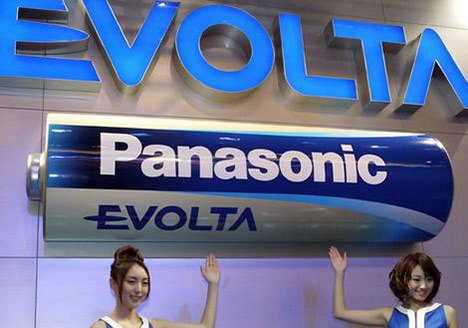
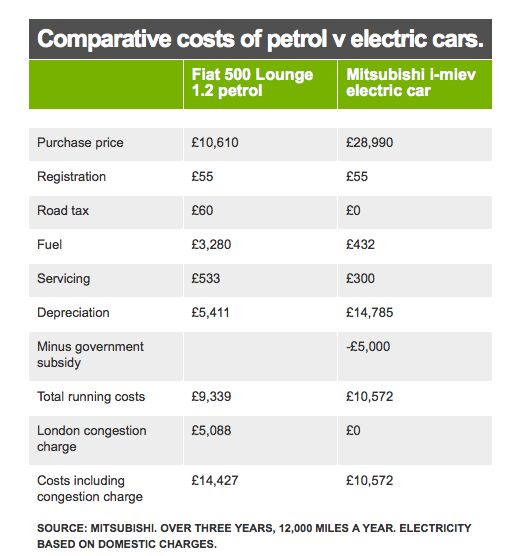


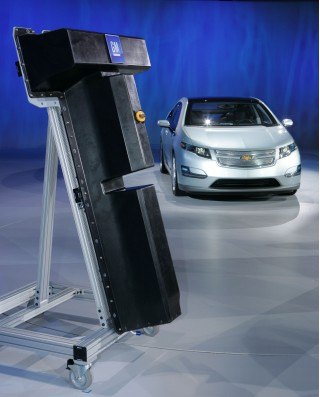
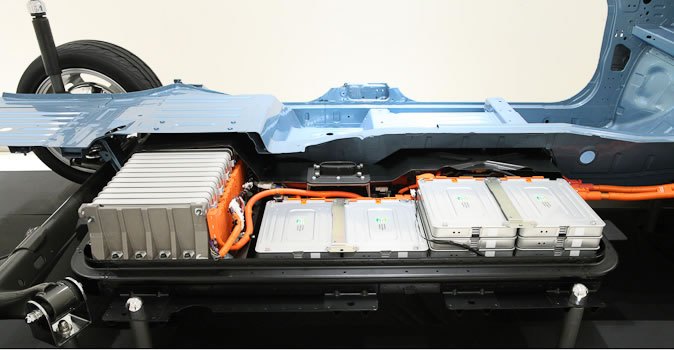

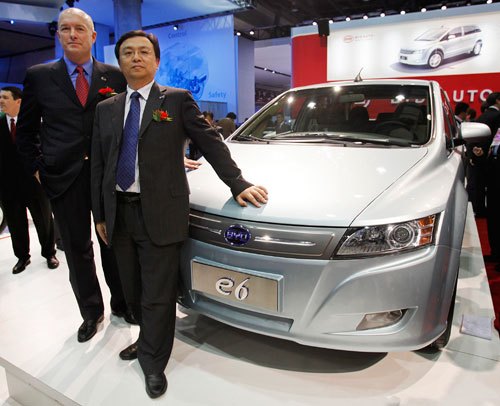


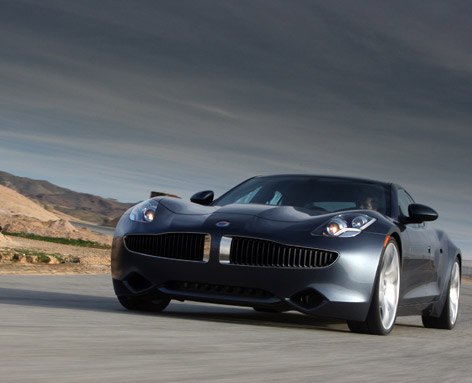


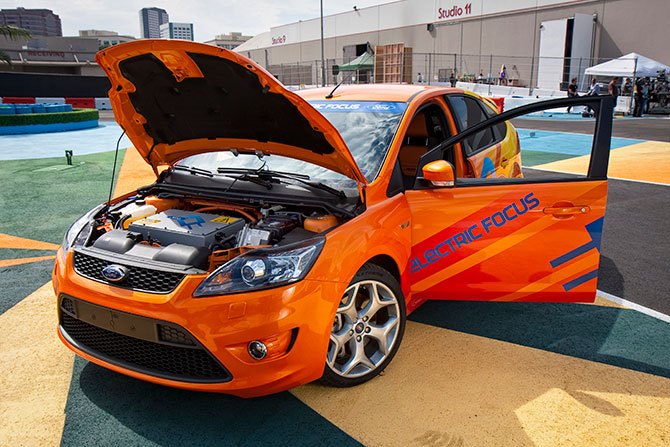












Recent Comments